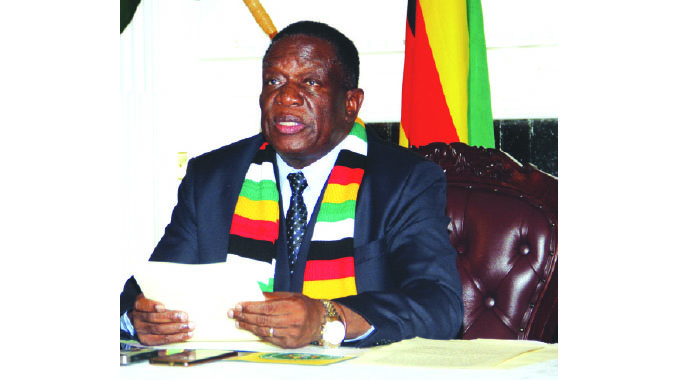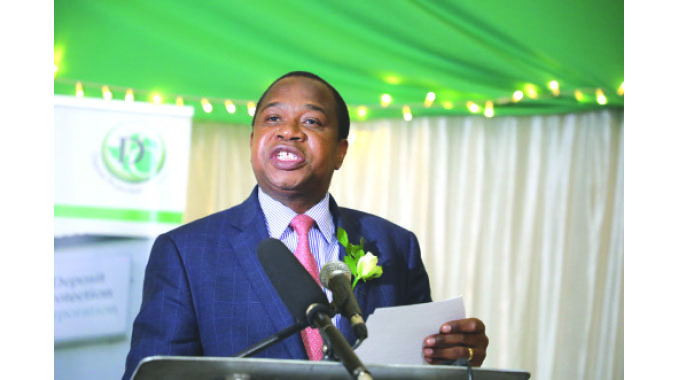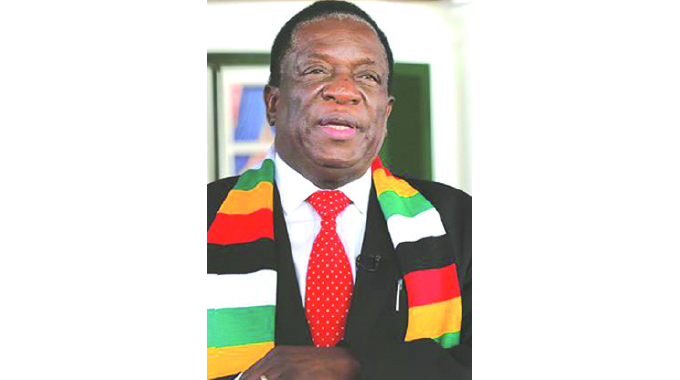
The Sunday News

Prosper Ndlovu recently in NIAMEY, Niger
PRESIDENT Mnangagwa says his Government will continue to increase budgetary investments into the health sector to ensure enhanced provision of quality and affordable healthcare to all citizens as part of the national drive towards attaining an upper middle-income economy vision by 2030.
Despite the crippling impact of sanctions in the sector and the economy at large, as well as the outbreak of Covid-19, which induced a further strain on the country’s health system, President Mnangagwa told journalists in an interview on the sidelines of the just-ended African Union Extraordinary Heads of States and Governments on Industrialisation and Economic
Transformation in Niamey, Niger, that the focus on transforming the sector will not be deterred.
He said the budget outline for health, which was presented in Parliament by Finance and Economic Development Minister, Professor Mthuli Ncube last Thursday, should buttress the positive strides achieved in the sector so far using domestic resources.
The Treasury has already allocated 11 percent of the $4,5 trillion budget envelope for 2023 towards the health sector, with the aim of eventually meeting the Abuja Declaration of 15 percent.
“The health sector back home has suffered particularly as a result of sanctions, we have had two decades of sanctions and our health coverage had gone down.
“Now the attack, which came to Zimbabwe and the rest of the world through Covid-19 has given us the awakening bell to say ‘please wake up, you will never know when the next pandemic is coming, prepare yourself’. So, we are now focusing on making sure that our health sector is attended to. If you look at the budget, we have upped drastically our investment into the health sector because we feel when the Covid-19 came about, Zimbabwe was isolated.
“We never received any significant amounts from outside, we had to depend on our own domestic resources, we diverted funds from other projects to make sure we protected our people and at the end of the day Zimbabwe did actually very well in the region and perhaps in the whole continent in terms of mitigating the impact of Covid-19. We’re not going to stop at that.”
The President, who returned home yesterday morning, said his Government was determined to adopt all necessary measures possible to make sure the country’s health system is adequately capacitated to deal with potential future pandemics and maintaining quality service standards.
“We’re not going to stop there; we are making sure that we are going to do anything possible to prepare for any pandemic that may come. But also, it’s good to have our people have the best health service system,” he said.
Notwithstanding financial constraints, Prof Ncube in his budget statement said Government is committed to improving healthcare services countrywide, as evidenced by the ongoing construction and rehabilitation of health facilities.

Professor Mthuli Ncube
Among the notable projects are; the Lupane Provincial Hospital, health posts in Mutasa, Mashayamvura, four in Gokwe North; and three in Centenary District, 30 poly-clinics and five district hospitals under the NDS1 project, among others.
Over and above staff welfare spending, the minister said the budget will be channelled towards provision of adequate medical equipment and sundries for public hospitals, which has a provision of $43 billion under the 2023 budget.
The Government also targets to procure 100 ambulances, of which 32 have so far been procured and distributed around the country, mainly targeting areas of dire need, with the outstanding set to be procured in 2023.
Prof Ncube said a further, $2 billion for procurement of ambulances, utility vehicles and other essential medical equipment’s was set aside for this year’s budget while $33 billion will go towards the rehabilitation and construction of hospitals and clinics. Furthermore, $1,1 billion has been set aside for the establishment of a stand-alone research and teaching hospital.
The Government has also guaranteed the stable supply of life saving drugs for HIV and Aids, TB and malaria co-morbidities, completion of Harare National Pharmaceutical Warehouse, procured Magnetic Resonance Imaging equipment (MRI), as well as ambulances and service vehicles.
Prof Ncube also commended the sustained development partner support in the health sector, which has seen the country receiving a total of US$408,3 million during the first nine months of 2022.
He said the support went towards the areas of maternal, newly-born, child adolescent and reproductive health, HIV and Aids, Tuberculosis (TB) and malaria prevention programmes, and strengthening of the health delivery systems.
In 2023, the sector is projected to receive US$212,9 million from the development partners towards the same areas. The minister, however, noted the challenges related to high staff turnover in the sector, which has an overall vacancy rate of 13 percent that is more pronounced among the specialist doctors’ categories.
“The high turnover of health personnel is compromising the provision of health services in the public sector. Government is, however, addressing this challenge through continuous review of both monetary and non-monetary incentives in order to attract and retain medical personnel.”

President Mnangagwa
Health specific allowances have generally been indexed to the US$150, to address the impact of inflationary pressures. Issues and concerns with the current allowances structure under various categories is also being addressed, said Prof Ncube.
On non-monetary benefits, he said Government has set aside resources towards the construction of institutional accommodation at various health centres, including procurement of staff buses and operational vehicles.
“Currently, Government and banks are working on a Vehicle Guarantee Fund, to ensure sustainability and wider access to vehicle loans at concessionary terms for health workers. Government, has also approved a housing guarantee fund to enable health workers easier access to affordable loans from banks. Since inception 637 staff members have benefited from the scheme.
Furthermore, members are benefiting from the vehicles duty-free dispensation to import personal vehicles using free funds.”
So far, Prof Ncube said over 1 000 health workers have benefited from the scheme while the Government will continue to pursue the registration on the World Health Organisation Safeguard list and sign bilateral agreements with countries that have the 151 highest intake of Health Workers for the country to benefit from migrating health workers.



